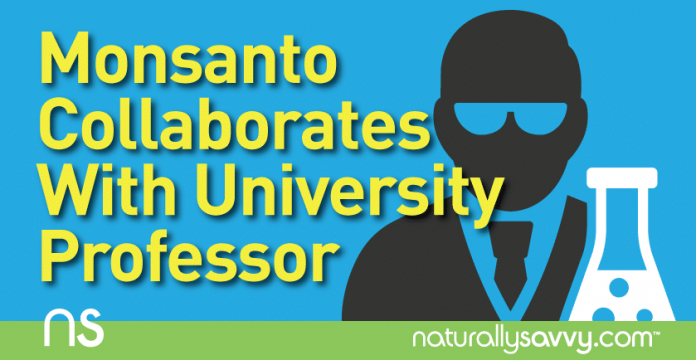
Monsanto appears to have had cozy relationships with some U.S. academics. The consumer group U.S. Right to Know obtained emails that reveal the agrichemical giant Monsanto Co. and former University of Illinois food science Professor Bruce Chassy collaborated on projects to promote genetically modified (GMO) crops.
The emails revealed that Monsanto gave financial contributions to the university for Chassy to use during the same time that either Monsanto or public relations people affiliated with Monsanto were providing Chassy with pro-GMO content. Monsanto and a public relations operative helped Chassy create and launch a non-profit group and website called Academics Review whose purpose was to criticize those who raised questions about the safety or environmental risks of GMOs, the emails reveal.
“Professors shouldn’t be able to lobby or do PR for agrichemical companies while representing themselves as independent, and they should have to disclose any money they receive from those companies,” said Gary Ruskin, co-director of U.S. Right to Know, in a statement. “Congress should expand the Physician Payments Sunshine Act to require disclosure of payments from food and agrichemical companies to professors and universities.”
The emails reveal significant collaboration between Chassy and Eric Sachs, Monsanto’s chief of global scientific affairs. Sachs told Chassy in a November 2010 email that the company has just sent a “gift of $10,000 to the university “so the funds should be there.” Sachs also told Chassy that “you and I need to talk more about the academics review site and concept.” Sachs stated in the email that he believes “there is a path to a process that would better respond to scientific concerns and allegations.”
A year later, several emails reveal that Chassy and Sachs discussed ways they could lobby the U.S. Environmental Protection Agency against expanding regulation of GMO crops. In one email, Chassy stated that the “overarching agenda issue is what should industry, academe, BIO and interested members of civil society do next to encourage EPA to reduce rather than expand regulation” of GMO crops.
Chassy told colleagues in an October 2010 email about a trip he will take South Korea and Russia. He states in the email that Monsanto informed him they will “make a substantial contribution” to his biotech account at the university “in the next 30-60 days.” And as a result “there should be sufficient funds by a good margin to cover the Korean hotels,” he added.
Chassy dismisses concerns about the emails. “As a public-sector research scientist, it was expected and a requirement of my position at the University of Illinois that I collaborate with and solicit the engagement of those working in my field of expertise,” Chassy stated in a blog post.
Chassy and Monsanto continued to have close ties after his retirement from the university in 2012, according to U.S. Right to Know. In 2013 and 2014, he appeared as an “independent expert” on the pro-GMO site GMO Answers, which is funded by Monsanto and other agribusiness companies.
Read about reasons to avoid GMOs
Chassy is not the only academic in the U.S. to collaborate with Monsanto. Monsanto gave University of Florida professor Kevin Folta an unrestricted $25,000 grant. Folta told Monsanto employees in an email that he would be “glad to sign on to whatever you like” and “write whatever you like.”




